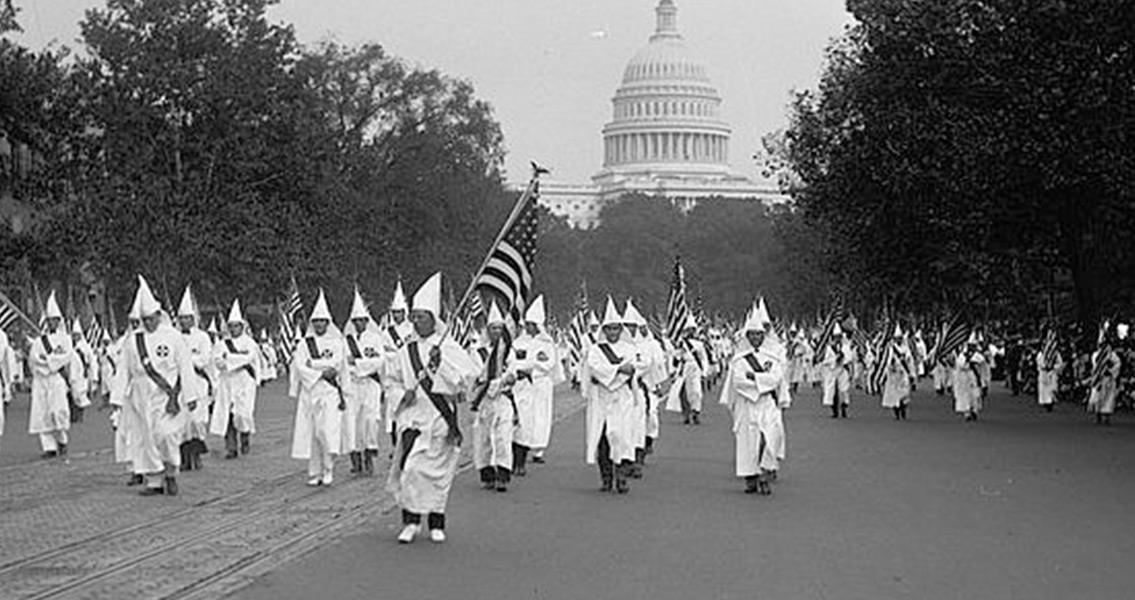<![CDATA[On November 19th 1923, the Oklahoma State Governor John C. Walton was impeached by the US Senate and removed from office. Walton was tried for twenty two crimes, ranging from breaking laws relating to the separation of governmental powers, to diverting public funds. The context of the impeachment reveals a great deal about the history of the Mid-West during this period, and the growing visibility of the Ku Klux Klan outside the southern states. Walton was born and raised in rural Indiana. His childhood, largely based around farm life, included periods living in Nebraska and Arkansas. Although other details about his young adult life are sketchy at best, he co-founded the McIntosh and Walton Engineering Company in 1913 in Oklahoma City. In many ways his life could be seen as a microcosm of the great changes taking place in the Southern and Mid-Western US States in this period - A transition from a rural life to an urban one. His political career started in 1917, when he was elected Commissioner of public works in Oklahoma. His election campaign was marked by the novel use of a jazz band, a marketing tool that would reappear throughout his career. By 1919 he had been elected Mayor of Oklahoma, and he further cemented his image as a charismatic 'man of the people', with close links to blue collar workers. He particularly caught the attention of the city's socialists, labour unions and farmers, with his of support of Oklahoma's meat packers during a strike. He refused to provide police protection to the owners of the meat factories, and organised food aid for the strikers, something which created a stark rift between himself and the state's chamber of commerce. The important respect Walton had won proved crucial in his eventual election as state governor. In September 1921 Oklahoma's trade unionists, socialists, and farmers united to form the Farmer-Labour Reconstruction League. The League nominated Walton as the Democratic candidate for State Governor. He won the election, defeating amongst others R.H. Wilson, a candidate backed by the Ku Klux Klan. This victory highlighted a theme that would return in Walton's career - a politician fighting to keep the influence of the Ku Klux Klan out of Oklahoma. The Ku Klux Klan had been around for fifty years before it finally started to exert its presence in the Mid-West in 1920. The Klan was a grass roots organisation whose origins ultimately lay in the Confederate defeat in the American Civil War. The group stood in resistance to Reconstruction in the South, fearing that the liberation of African Americans and medling of white liberals would bring ruin to the USA. It orignated in 1861 in Tennesse, but by the 1920's had started making significant in roads further north, to states such as Oklahoma. Xenophobia and extreme religious conservatism were the breeding ground for the Klan. The Tulsa Riots of 1921 highlighted just how strong these ideas had become in Oklahoma, when thirty five blocks in the thriving African American town of Greenwood were destoryed in one of the worst race riots in history. Examples of Klan violence became more frequent during Walton's term of office, and the organisation's influence throughout society was getting more pronounced. Walton set out to restrict the Klan's influence in Oklahoma, and the violence that often surrounded its members. He imposed martial law on Omulgee County and Tulas, in an attempt to curb the Klan's violence. After this failed, and the Klan's strength remained obvious, he imposed martial law on the entire state in September 1922. These actions created resentment against Walton, from influential Klan members, but also from normal members of society who felt he was abusing his position to punish a group that often enjoyed great public sympathy, if not support. Ultimately, the actions he took in his attempts to restrict the Klan were considered an abuse of power, and formed the basis of his impeachment. The conflict with the Ku Klux Klan was of course not the only reason for Walton's trial. His leadership was blighted by a host of other misdemeanours, including dismissing the authorities that attempted to investigate his alleged crimes, and awarding positions of power to his supporters. His actions eventually even started to alienate the Farmer-Labour Reconstruction League, who had been so pivotal in his election. Walton is now only remembered as an unusual statistic - one of the few US Governors in US history to be impeached while in office. His actions against the Ku Klux Klan in Oklahoma however, were crucial in getting an anti-mask bill passed in the state, which restricted the ability of the group to anonymously carry out acts of violence. He stands as a fascinating character in American history, an individual far to complicated to be dismissed as nothing more than a corrupt politician.]]>
The Impeachment of John C. Walton
